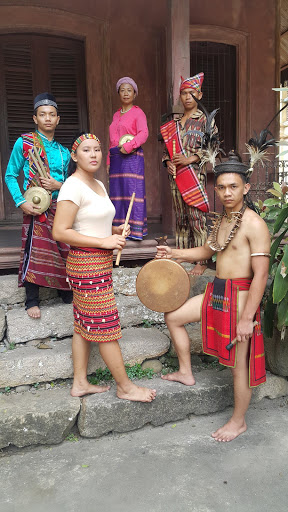About 40 youths from all over Southeast Asian will converge to celebrate traditional music as well as other Southeast Asian values and traditions, and share and exchange ideas and experiences at the ASEAN Youth Camp (AYC) from November 23 to December 1, 2015, in Sagada, Mountain Province.

The camp is funded by the Association of South East Asian Nations (ASEAN) under the Philippine chairmanship of the Department of Foreign Affairs (DFA) with the support of the National Commission for Culture and the Arts (NCCA), the prime government agency for arts and culture headed by its chairman Felipe M. De Leon Jr. and OIC-executive director Adelina M. Suemith, through its International Affairs Office.
Following the success of the last (Association of Southeast Asian Nations) ASEAN Youth Camp, with Singapore as host/implementer of the 10th installment of the annual activity, the Philippines proposed the revival of the same, through a second cycle which will feature traditional instruments common among the ASEAN member states—gongs and bamboo—while at the same time, gathering a select group of alumni from the same field of expertise (traditional music), to serve as adult leaders for their respective youth delegations.
With the Philippines as the host of the first installment of the AYC in 1998, through the project “Nature Hug: Honoring Nature Through the Arts,” it is only fitting that the second cycle be launched in the Philippines. The AYC is in keeping with the provisions of the Declaration on ASEAN Unity in Cultural Diversity: Towards Strengthening ASEAN Community, signed at the 19th ASEAN Summit in Bali, Indonesia, which promotes the understanding that cultural traditions are an integral part of Southeast Asia’s heritage and an effective means of bringing together Southeast Asian peoples to recognize their regional identity and relatedness.
ASEAN member nations—the Philippines, Indonesia, Malaysia, Singapore, Thailand, Brunei Darussalam, Cambodia, Laos, Myanmar and Vietnam—have a diverse yet common tradition of music played on gongs and bamboo instruments This music camp and festival aims to celebrate the dynamic presence of gongs and bamboo music traditions that had their beginnings centuries ago and yet remain strong to this day, as practiced in communities all over Southeast Asia.
As De Leon, a respected music artist and academician in the region, so aptly puts it, “This music of gongs and bamboo has always been connected with people’s harmonious ways with nature and their belief in invisible things, ever enhancing their spiritual and moral strengths as peoples and communities.”
The second cycle of the ASEAN Youth Camp will explore and bring together a variety of resonance from gongs and bamboo instruments harnessing both ancient and modern repertoires where master artists and young musicians from Southeast Asia can interact and create integrated renditions that will be showcased in a culminating festival/concert.
This year’s camp director will be one of the Philippines’ National Artists for music, Dr. Ramon P. Santos. Each ASEAN member states will be fielding about four young musicians of gongs and/or bamboo musical instruments, aged 18 to 30 years old, and a former AYC delegate for music (traditional music instrument player) who will act as the adult leader/head of delegation.

The Philippine delegation is composed of Maria Cristina Orante, 23; Don Jason Marco Hilotina, 26; Kurt Alalag, 19; and Edgar Sabang, 25. They represent the different ethnic groups of the Philippines. Two are from the Cordilleras in Luzon Island, while one is Maguindanao and the another a T’boli, both from Mindanao. They play different traditional instruments such as the kulintang, paldong, tongali, gangsa, kulitong, bongos, nose flutes, dizi flute, gongs, kumbing, sludoy (bamboo zither), sloli (flute) and hegelung (two-stringed lute).
They will be headed by Gian Mari Gianan, a Bachelor of Music in Composition graduate of the University of the Philippines who plays the kulintang, gangsa and nose flute, among others.
The Camp will be filled with music sharing sessions, collaboration workshops, local culture immersions, and performances. It will culminate in a concert feature their collaborations.
For more information on this press release, please contact Mr. Rene Napeñas, head of the Public Affairs and Information Office, through 0928-5081057, 527-2192 loc 208 or through email address ncca.paio@gmail.com; or the NCCA International Affairs Office at +63-2-5272206 / +63-2-5272175 / +63-2-5272192 loc. 612 to 615 or +63-2-5258656. Email ayc2015ph@gmail.com or ncca_iao@yahoo.com.
